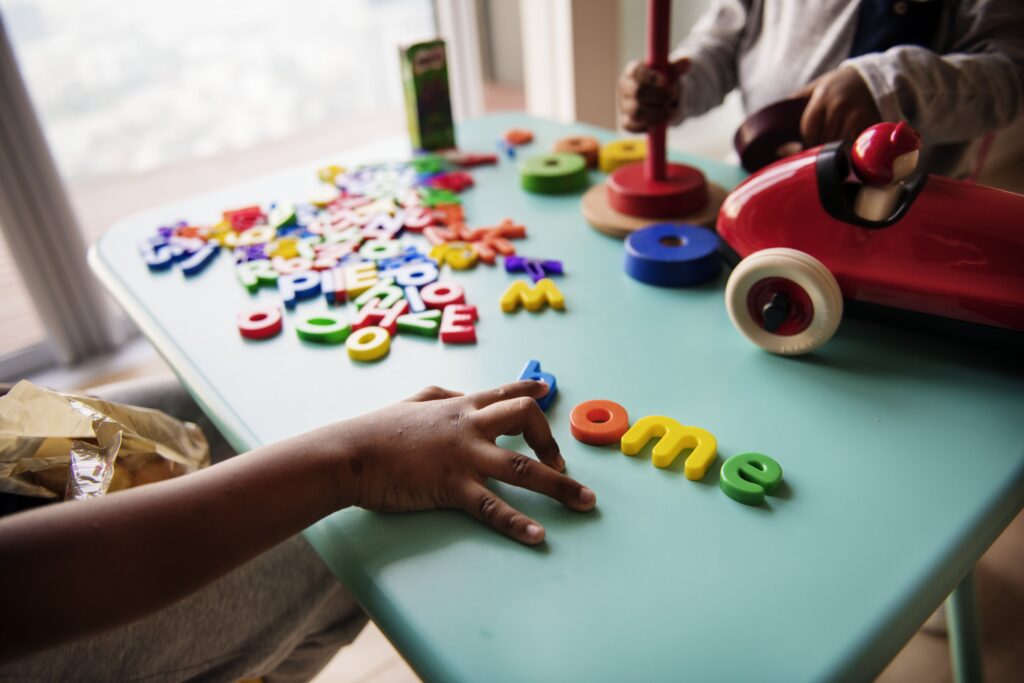Searching for “Montessori schools near me” is often the first step parents take when exploring alternative education for their children. Montessori education emphasizes independence, hands-on learning, and respect for a child’s natural development. But with so many schools claiming to follow the Montessori method, how can you choose the best option near you?
This guide breaks down what to look for, questions to ask, and red flags to avoid — so you can confidently select the right Montessori school for your child.
What Is a Montessori School?

A Montessori school is based on the philosophy of Dr. Maria Montessori, which encourages self-directed learning in a carefully prepared environment. Key principles include:
- Child-centered classrooms instead of teacher-led lectures.
- Hands-on learning materials designed for discovery.
- Mixed-age classrooms (usually 3-6 years, 6-9 years, etc.).
- Independence and responsibility as part of daily activities.
Why Parents Search “Montessori Schools Near Me”
The “near me” search reflects parents’ desire for:
- Convenience – proximity to home or workplace.
- Reputation – finding trusted schools in their community.
- Comparisons – evaluating tuition, curriculum, and facilities nearby.
How to Choose the Best Montessori School
1. Check Accreditation
Look for accreditation from organizations like:
- AMI (Association Montessori Internationale)
- AMS (American Montessori Society)
Accredited schools follow authentic Montessori principles, ensuring quality.
2. Visit the Classrooms
During a tour, observe:
- Are children working independently?
- Is the environment calm, organized, and respectful?
- Are Montessori materials (like bead chains, sandpaper letters) present?
3. Ask About Teacher Training
Qualified Montessori teachers undergo specialized training. Ask:
- Are lead teachers Montessori certified?
- What is their experience with the age group?
4. Understand the Curriculum
True Montessori schools emphasize:
- Practical life skills (pouring, cleaning, organizing).
- Sensorial activities (sorting by shape, size, texture).
- Language and math through hands-on materials.
- Creativity, culture, and outdoor exploration.
5. Compare Tuition and Fees
Costs vary widely by country and city. Some Montessori schools are private and charge high tuition, while others may be community-based or part of public systems.
6. Ask for Parent Reviews
Search online for parent testimonials, or ask the school to connect you with current families. Honest reviews give insights into daily experiences.
Red Flags to Watch Out For
Not all schools using “Montessori” in their name are authentic. Be cautious if:
- The classroom looks like a traditional setup with rows of desks.
- Teachers dominate lessons instead of guiding.
- Few or no Montessori materials are visible.
- Large class sizes without proper supervision.
What age is best to start Montessori school?
Most Montessori schools start at age 2.5–3 years, though some accept younger children.
Are Montessori schools worth the cost?
Yes, many parents find the individualized learning and independence valuable, though costs vary.
Is Montessori good for every child?
Montessori suits most children but may not be ideal for those needing highly structured environments.
Can Montessori be combined with traditional methods?
Some schools offer a hybrid model, but purists recommend a fully Montessori approach for best results.
When you search “Montessori schools near me,” you’re already on the path to giving your child a strong foundation for lifelong learning. By checking accreditation, teacher qualifications, and classroom environments, you’ll be able to identify schools that truly embody the Montessori philosophy.
Choosing the best Montessori school near you is about more than location — it’s about finding an environment where your child can thrive, grow, and love learning every day.
Thank you for visiting GHResults.com — we wish you all the best on your journey ahead, and we look forward to welcoming you back soon!

